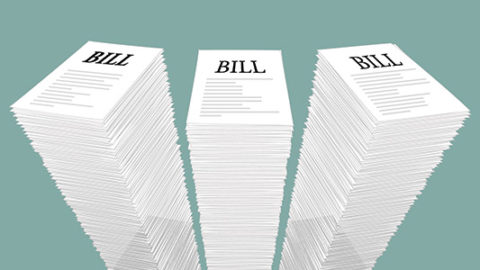Midterms 2022: 6 Health Care Public Policies Employers Should Watch

Whatever the political landscape looks like on Wednesday morning in the aftermath of today’s midterm elections, there will be implications for policies impacting health care quality and costs.
Outlined here are six possible outcomes of the election that large employers and purchasers – who provide health benefits for more than half the country – should watch.
1. A Focus on Transparency
Both Democrats and Republicans have signaled a desire to aggressively pursue greater transparency requirements among health industry players, with an emphasis on pharmacy benefit manager (PBM) reform and more effective hospital and provider price transparency.
As an example of possible action if Republicans win congressional control is a hospital pricing transparency reform plan released by Rep. Jim Banks (R-Ind.), who, according to a recent article in Stat, is jockeying for a leadership position if Republicans take the House. The hospital pricing reform plan “would regulate what hospitals charge commercial insurers, beef up the Federal Trade Commission’s scrutiny of hospital mergers and reduce financial incentives for hospitals to buy up physician practices,” according to Stat.
Watch for PBM reform to receive a lot of attention regardless of whether the election outcome is a divided government, as it has garnered bipartisan support in recent years. The upcoming publication of a Federal Trade Commission (FTC) report on PBM business practices may serve as both a catalyst and roadmap for strengthening PBM regulations. It’s likely the FTC will also step-up oversight of proposed health care mergers and acquisitions, which could put the brakes on continued industry consolidation.
Other potential regulatory or administrative actions could encourage alternative payment models for both primary and specialty care.
2. Brewing Battle over Medicare Drug Prices
Should Republicans gain a majority in one or both houses of Congress, as expected, the Biden administration will likely turn to increased regulatory action to further its health care agenda. One of the biggest battles may develop around the implementation of the Medicare drug price limits, which were included in the administration’s Inflation Reduction Act passed last summer. Drug manufacturers will push to weaken the regulations, while consumer and purchaser advocates, including PBGH, will try to ensure the regulations are consistent with congressional intent. Employers and employees were at the last minute excluded from this important legislation – but the implementation of the law will have far-reaching consequences for future reforms. It will be important to monitor the regulatory efforts as this new law is made operational.
3. Federal/State Partnerships
Although 36 governorships are up for grabs, only a handful are expected to result in changes in political party control. Why does it matter? Look for the Biden administration to seek new partnerships with states in pursuit of reform initiatives if Congress is gridlocked. This scenario could create opportunities for scaling work related to advanced primary care, price transparency, drug pricing and the measurement of performance by industry players, such as health plans. Additionally, it may create occasions for new health equity initiatives.
4. State Action to Curb Costs
Regardless of what happens at the national level, several states are expected to pursue their own health care cost containment policies. These may include prohibitions on anti-competitive contracting practices, stronger oversight of proposed mergers and acquisitions and limits on the growth of health care costs including drug pricing reforms. While Democratic governors and legislators traditionally have taken the lead with these kinds of initiatives, the potential exists for growing bipartisan support around cost containment and market reform policies.
5. Telehealth Flexibility
The regulatory waivers for greater telehealth access during the COVID-19 public health emergency were largely for Medicare and Medicaid services; however, optional telehealth expansions for employers to provide pre-deductible coverage of these services for workers with high deductible health plans (HDPDs) was allowed.
Bipartisan, bicameral legislation was introduced in Congress, which would provide additional flexibility to extend pre-deductible coverage to services that manage chronic conditions, as well as legislation to make permanent telehealth coverage pre-deductible. More flexible and smarter value-based plan designs like these pre-deductible coverage options have been popular among employers and purchasers because rising health care spending has created serious fiscal challenges. Although telehealth is broadly bipartisan, Republicans have been more vocal in their support of telehealth flexibility.
6. Reproductive Rights on the Ballot
Reproductive rights are top-of-mind for many voters, and consequently are on the ballot in five states. The abortion issue has been central in many key races nationwide and whether it motivates larger-than-usual turnouts in today’s election will be closely monitored. Ballot measures in California, Michigan and Vermont would codify abortion rights in state law, while measures in Kentucky and Montana would create severe new abortion restrictions. These are sensitive issues for employees and the employers who provide their health care benefits. Employers will need to face head on this changing patchwork of state laws.
PBGH will continue tracking legislative proposals and policies at both the state and federal levels in the weeks and months ahead, and work to ensure the voice of large employers and purchasers is heard when it comes to shaping a financially sustainable, high-quality health care system.



